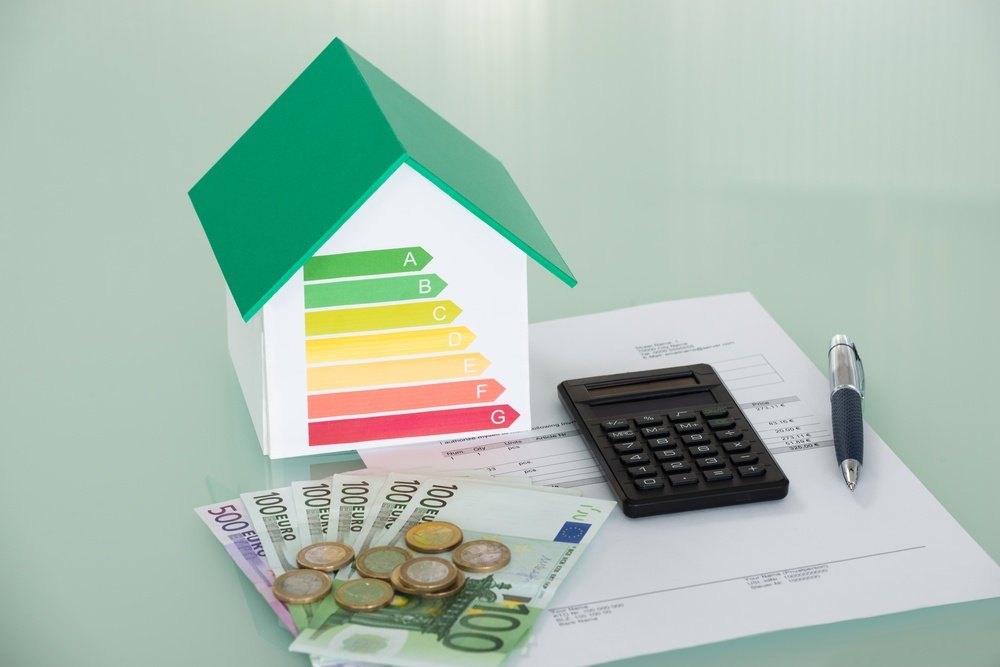How an Energy Efficient Tax Credit Can Help Your Home Improvement Project

Did you know that certain home improvement projects are eligible for tax credits? Furthermore, making certain adjustments to the way your home uses energy can help you earn a special energy efficiency tax credit. Doing some research on which projects qualify you for these tax credits can allow you to plan for a cost-effective renovation.
We want to help you get started, so we’ve put together an explanation of how an energy efficiency tax credit can benefit you during home improvement. Read on to discover some of the easiest ways to make some money back during your next renovation, and make your home more environmentally-friendly in the process!
Wait… Didn’t Most Energy Efficiency Tax Credit Options Expire Last Year?
You might be a little confused by our talk of energy efficient tax credit options. After all, the Energy Star website only lists one available tax credit for the 2017 year: a 30% tax credit for solar energy systems. However, this credit is fairly robust, in that it covers both new construction and existing homes.
Furthermore, it covers second homes as well as principal residences, although rentals are excluded. Eligible solar energy systems in this category include both solar panel systems and solar water heaters, as long as they meet the following requirements:
- Properties with solar water heaters only qualify if at least half their energy comes from the sun. The system must also be approved by the SRCC, and the heated water must be used inside the building itself (so no outdoor pools or hot tubs).
- Solar panels only qualify if they provide electricity for the residence, and meet the requirements of the fire and electrical codes for the area in which they are installed.
In this way, installing solar energy in your home does more than just save you money on utility bills. It also helps to offset the upfront costs of solar energy installation, which can easily exceed $20,000 otherwise.
How Do I Know if My Solar Energy Systems Qualify?
There are two easy ways to determine whether your Solar Energy Systems meet the requirements for the 2017 tax credit. The first of these is to look for an Energy Star certified solar water heater, since all Energy Star certified heaters qualify. The second is to use an energy auditing program like Benefyd to measure energy usage in your home. Benefyd’s app asks you a few basic questions, then provides a comprehensive report on how energy is being used in your home and how it can be improved.

Retroactive Tax Credits
Certain items that were eligible for tax credits in 2016 can still provide retroactive benefits, meaning that you can continue to receive credits as long as you have already installed them. They won’t be of much use to new home builders or those renovating this year, but several items are eligible for a 10% credit up to $500 or a predetermined amount between $50-300 if they already exist in a principal residence that you own.
There are many excellent reasons to pursue home improvement projects even without tax credits. Monthly savings are just one example. In fact, by some estimates an average residential solar energy system is capable of cutting your monthly utility bills in half, and most Energy Star certified appliances all have the potential to offer significant savings. You’ll also enjoy the knowledge that your home improvement projects are lowering your carbon footprint and making the earth a more sustainable place. Finally, remember that it is always possible to bring additional energy efficient tax credits into existence. Voting for members of Congress who support the environment, writing to your elected representatives, and organising petitions are all excellent ways to help encourage the creation of energy efficient tax credits for future years.
If you are planning new renovations, consider solar energy systems and the tools to determine their effectiveness. If you have recently renovated, make sure to check the Energy Star list of items that may qualify for a retroactive tax credit. Doing so can help you recoup the costs of a renovation, and allow you to enjoy a more energy efficient home at a more affordable cost.


